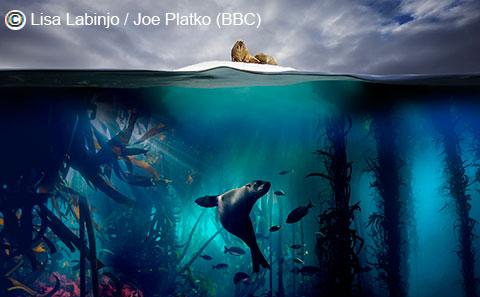
Listen to the BBC episode podcast
Dr Jon Copley features every week in the BBC's Blue Planet II podcast, in his 'Catch of the Day' feature. Go to this week's podcast - Sea Cucumbers and Pajama Sharks.
Episode five of Blue Planet II, 'Green Seas', looks at the enchanted forests of kelp, mangroves and prairies of sea grass. Among these forests live a plethora of marine life, including sharks and algae.
Find out more about how ocean and marine science at the University of Southampton is helping to understand and preserve our 'Green Seas'.

PhD student Chris Bird talks about his close encounters with sharks in a mangrove swamp.
Find out more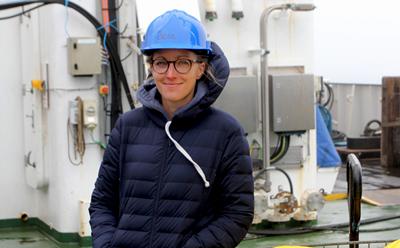
Scientists have discovered that a ‘rare’ type of marine bacteria is more widespread and may influence global warming.
Find out moreAfter each week's episode our MSci students Kieran and Elin will be updating the Exploring our Oceans blog. They will share their thoughts about the episode and relate it back to what they are learning here at Southampton.
This week Elin talks about a case study from her course where otters were removed from a kelp forest and the results were catastrophic and Kieran shares his passion for mangrove forests.
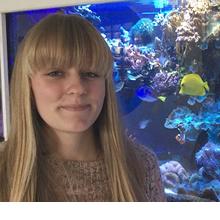
During our first-year marine ecology lectures, we learnt about a phenomenon coined the trophic cascade, and a specific case study from the kelp forests off the west coast of the USA.
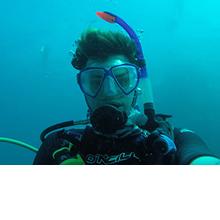
Only 6.9% of mangrove forests are protected, and anywhere between 35-86% of mangroves were lost in the last 25 years.
Research undertaken by staff here at the University of Southampton has informed much of the science that is covered in Blue Planet II.
Professor Martin Solan, Professor in Marine Ecology
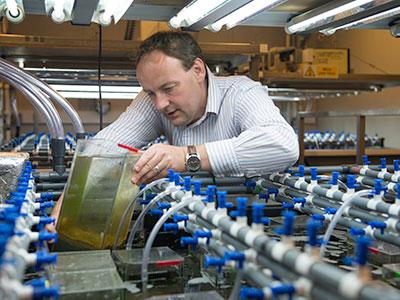
“The green seas episode is a wonderful testimony to the biodiversity of our coastal seas, highlighting the complexity of species interactions and the importance of a variety of habitats in supporting the entire food web. Plankton blooms, kelp forests and seagrass beds form some of the most productive ecosystems of anywhere on the planet, but are often overlooked and are extremely vulnerable to the actions of humans.
The sequence detailing how sea urchins, otters and kelp forests are intimately linked to one another is a good reminder of why it is important to maintain an appropriate ecological balance. At the Biodiversity and Ecosystem Futures Facility in Southampton, we maintain species from polar, temperate and tropical ecosystems and study how altered biodiversity, climate change and other human pressures effect how these systems function. By combining this information with observations we make in natural systems all around the world, we are beginning to recognise and understand how natural and human systems affect once another.”
Find out more about Professor Martin Solan's work and publications.

Dr Jon Copley features every week in the BBC's Blue Planet II podcast, in his 'Catch of the Day' feature. Go to this week's podcast - Sea Cucumbers and Pajama Sharks.
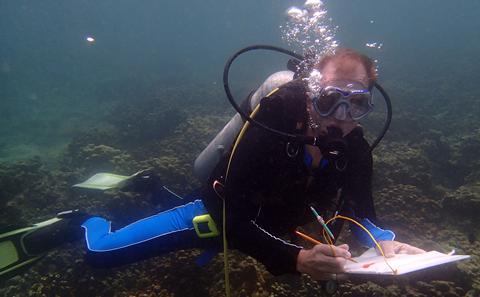
If you have been inspired to study our Blue Planet by the BBC's series, explore of the undergraduate and postgraduate degrees we offer.
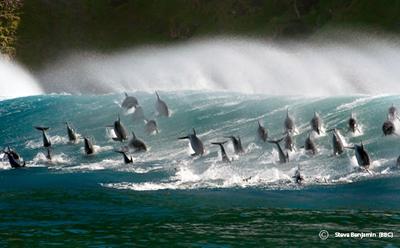
Extend your knowledge of the subjects covered in episode six of Blue Planet II, coasts.
Explore coasts